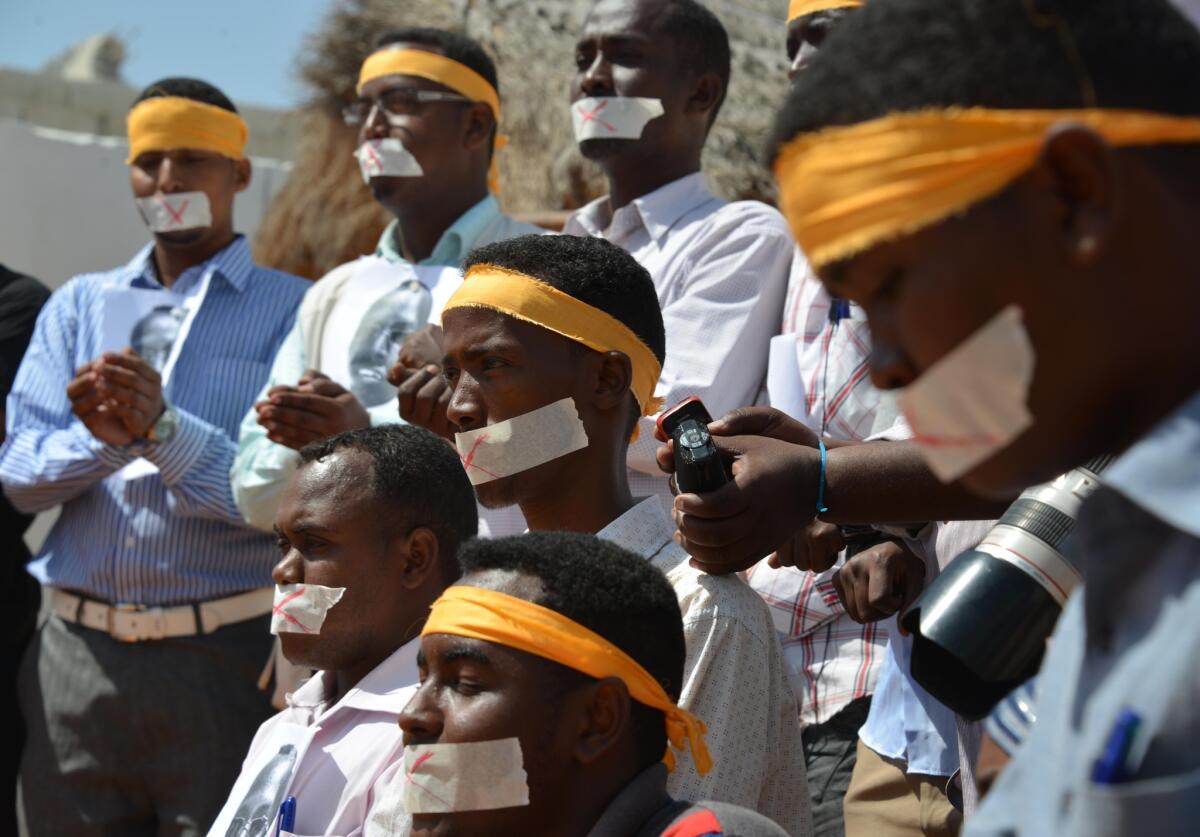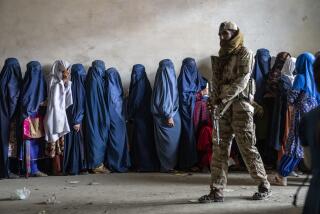The assault on women

The disturbing case of a Somali woman who alleged she was raped by security forces, only to be convicted by a court Tuesday of making a false claim and insulting the state, has outraged human rights groups and advocates for women’s rights around the world. The court also convicted a journalist who had interviewed the woman of the same charges (although he has published nothing so far). Each was given a one-year prison sentence. The State Department and U.N. Secretary-General Ban Ki-moon issued statements of concern about the case, and a spokesperson for the U.N. noted that the organization has long been alarmed about underreported incidents of sexual violence in displaced-persons camps in Somalia, such as the one the alleged victim lived in.
The case is a stark reminder of how dismissive governments often are — not just in Somalia but around the world — of sexual violence against women. According to Human Rights Watch, women reporting sexual assaults have been treated callously and skeptically by law enforcement agencies from Colombia to the District of Columbia. In some cases, allegations are ignored or are not investigated seriously; in others, women are intimidated, publicly shamed or even prosecuted for daring to speak out. The recent fatal gang rape and beating of a woman on a bus in New Delhi sparked massive demonstrations in the streets of India, as well as calls for reforming the lackadaisical way that rape cases (and gang rape is common in that country) are handled by the courts.
The world had a champion for the rights of women and girls in former Secretary of State Hillary Rodham Clinton, whose department oversaw the Office of Global Women’s Issues. That office, created four years ago by President Obama, is charged with promoting women’s economic empowerment, health and education, and addressing issues of violence based on gender. Obama and his new secretary of State, John Kerry, said this week that the office would continue to be headed by an ambassador at large and that its goals would be given a high priority. It’s crucial that the department and the ambassador at large be aggressive in decrying violence against women, working with foreign governments to reform sluggish enforcement of sexual assault laws and to foster a more enlightened outlook on the nature of sexual violence. Women everywhere should have the right to report a sexual assault without fear of retribution, and with the confidence that their claims will be taken seriously.
More to Read
A cure for the common opinion
Get thought-provoking perspectives with our weekly newsletter.
You may occasionally receive promotional content from the Los Angeles Times.






